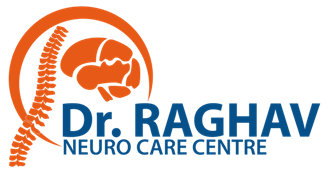- Home
- »
- Movement Disorder
- »
- Chorea
Chorea
Parkison's Disease
Tics
Chorea
Dystonia
Huntington's Disease
Myoclonus
Parkison's Disease
Botox Injections
Deep Brain Stimulation Surgery
Chorea is a neurological movement disorder characterized by involuntary, irregular, and unpredictable movements. Its name, derived from the Greek word “choreia,” means “dance,” reflecting the jerky, dance-like motions often associated with the condition. This article delves into the various aspects of chorea, including its causes, symptoms, diagnosis, and treatment options.
Causes of Chorea
Huntington’s Disease
Huntington’s disease stands as the most common cause of chorea. This genetic disorder leads to the progressive degeneration of nerve cells in the brain, manifesting in involuntary movements, cognitive decline, and psychiatric symptoms. As the disease progresses, individuals experience increasing difficulty with movement control and cognitive functions.
Sydenham’s Chorea
Sydenham’s chorea is associated with rheumatic fever, a complication of streptococcal infections. It predominantly affects children and adolescents, leading to rapid, jerky movements, emotional instability, and muscle weakness. This type of chorea often resolves on its own over time but can be distressing during its course.
Medication-induced Chorea
Certain medications, including antipsychotics and antiepileptic drugs, can induce chorea as a side effect. This form of chorea usually improves once the offending medication is adjusted or discontinued. However, it’s essential for patients to consult with their healthcare provider before making any changes to their medication regimen.
Other Causes
Chorea can also arise from metabolic disorders like Wilson’s disease and hyperthyroidism, as well as from infections, brain injuries, or strokes. Each underlying cause requires specific management strategies to address both the chorea and its root cause.
Symptoms of Chorea
Involuntary Movements
The hallmark of chorea is the presence of involuntary movements that can vary widely in severity. These movements may include twitches, flailing, or writhing motions and can affect various parts of the body, including the face, limbs, trunk, and neck.
Coordination and Balance Issues
Individuals with chorea often struggle with coordination and balance, which can impact their ability to perform daily activities. This lack of coordination can lead to frequent falls and accidents.
Muscle Weakness and Control
Chorea can result in muscle weakness and difficulty controlling movements. This weakness can make tasks that require fine motor skills, like writing or buttoning a shirt, challenging.
Abnormal Postures
Patients may adopt abnormal postures or positions as a result of the involuntary movements. These postures can be uncomfortable and contribute to further complications, such as muscle pain or joint issues.
Speech Difficulties
Speech can also be affected, leading to slurred or rapid speech. This difficulty can interfere with effective communication and may require speech therapy to address.
Emotional and Behavioral Changes
Chorea often brings about emotional and behavioral changes, such as irritability, mood swings, and depression. These changes can significantly impact the individual’s quality of life and relationships.
Diagnosis of Chorea
Medical History
A thorough medical history is crucial for diagnosing chorea. This includes gathering information about the patient’s symptoms, family history, and any underlying conditions that might be contributing to the disorder.
Physical Examination
During a physical examination, a healthcare provider assesses the presence and characteristics of involuntary movements and evaluates other neurological functions. This step helps in distinguishing chorea from other movement disorders.
Laboratory Tests
Blood tests are conducted to identify any metabolic or autoimmune abnormalities that may be causing chorea. These tests can help pinpoint specific conditions that need to be addressed.
Neuroimaging
Imaging tests such as MRI or CT scans are used to detect structural abnormalities in the brain or to rule out other potential causes of the symptoms. Neuroimaging provides valuable insights into the condition of the brain.
Genetic Testing
For cases where Huntington’s disease is suspected, genetic testing is performed to confirm the presence of the responsible gene mutation. This test helps in understanding the specific genetic cause of the chorea.
Treatment of Chorea
Medications
Treatment for chorea often involves medications to manage symptoms. Dopamine-depleting agents, antipsychotics, or benzodiazepines may be prescribed to reduce the involuntary movements and associated symptoms.
Physical and Occupational Therapy
Physical and occupational therapies play a significant role in improving coordination, balance, and muscle control. These therapies also offer strategies to cope with daily activities and improve overall functionality.
Supportive Care
Creating a supportive environment and implementing lifestyle modifications, such as maintaining a structured routine, can help minimize stress and improve overall well-being. Supportive care is essential for enhancing the quality of life.
Psychological Support
Given the emotional impact of chorea, psychological support is crucial. Counseling or support groups can provide coping strategies and emotional support, helping patients and their families manage the psychological aspects of the disorder.
Surgical Interventions
In severe cases that do not respond to other treatments, surgical options like deep brain stimulation (DBS) may be considered. DBS involves implanting electrodes in specific areas of the brain to regulate abnormal movements and provide relief from severe symptoms.
Conclusion
Chorea is a complex neurological disorder characterized by involuntary, irregular, and unpredictable movements. Although it can be caused by various underlying conditions, Huntington’s disease is the most common cause. While there is no cure for chorea, numerous treatment options are available to manage symptoms, address underlying causes, and improve quality of life. Seeking medical evaluation and guidance is essential for anyone experiencing chorea-like symptoms.
- raghav.sem@gmail.com
- 7310644100
- Vipin Nursing Home, Krishna Nagar, Mathura
Quick Link
Departments
- Cervical
- Epilepsy
- Migraine
- Dementia
- Headache
- Parkinson's
- Muscle Disease
- Brain Stroke Messages
- Spine Related Disorders
- Neuropathy Amongst Other Disorder
